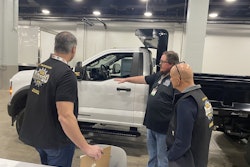
As the process of selling a commercial truck dealership progresses, the sixth step, crafting definitive agreements, marks a significant milestone.
Building upon the groundwork laid by the letter of intent (LOI), this step involves the preparation of binding asset purchase agreements (APA) and real estate purchase agreements (REPA or RESPA), or lease agreements.
In this article, we explore the complexities of definitive agreements, emphasizing their enforceable nature, the importance of meticulous revisions and the strategic role of a comprehensive LOI in streamlining this pivotal step.
Understanding definitive agreements:
- Building upon the LOI: Definitive agreements serve as the legal backbone of the commercial truck dealership sale. They expand upon the terms outlined in the LOI, creating legally binding documents that delineate the specifics of the transaction.
- Multiple rounds of revisions: The crafting of definitive agreements involves a series of intricate negotiations and revisions. Attorneys for both the buyer and the seller work collaboratively to ensure that the terms are fair equitable, and protect the interests of both parties.
- Binding and enforceable nature: Unlike the LOI, which is primarily non-binding, definitive agreements carry legal weight. The terms outlined within these agreements are binding and enforceable, marking a critical shift in the transaction process.
[RELATED: The letter of intent: Step 5 in selling your dealership]
The components of definitive agreements:
- Asset purchase agreement (APA): The APA outlines the specifics of the asset purchase, including the commercial truck dealership's inventory, contracts, goodwill, and other tangible and intangible assets. This agreement forms the core of the transaction, detailing what is being bought and sold.
- Real estate purchase agreement (REPA or RESPA) or lease agreement: Depending on the arrangement, this agreement covers the purchase or lease of the commercial property associated with the dealership. It outlines the terms, conditions, and any special considerations related to the real estate aspect of the transaction.
The importance of comprehensive LOI and negotiation involvement:
- Guiding the crafting process: A well-crafted LOI serves as a guidepost for the drafting of definitive agreements. The comprehensive nature of the LOI, covering various aspects of the transaction, streamlines the process, providing a foundation for attorneys to build upon.
- Expediting the negotiation process: Remaining actively involved in the negotiations, even during the crafting of definitive agreements, expedites the process. The seller's continued engagement ensures that their goals and interests are reflected in the final agreements.
- Ensuring fairness and equitability: Multiple rounds of revisions are essential to ensure that definitive agreements are fair and equitable for both parties. Attorneys on both sides play a crucial role in scrutinizing each clause, term, and condition to prevent any ambiguity or potential disputes.
Strategic considerations in crafting definitive agreements:
- Protecting sensitive information: The binding nature of definitive agreements underscores the importance of protecting sensitive information. Ensuring that confidentiality provisions are robust and enforceable is crucial to safeguarding proprietary details.
- Addressing special considerations: Special considerations, such as lease terms, purchase options, or unique conditions related to the commercial property, must be clearly outlined. These aspects are critical in determining the overall success and smooth transition of the transaction.
- Balancing buyer and seller interests: The negotiation process is a delicate balancing act, aiming to protect the interests of both the buyer and the seller. Crafting agreements that foster a win-win scenario is essential for a successful and amicable transaction.
This step underscores the binding and enforceable nature of these agreements, the necessity for meticulous revisions, and the strategic role of a comprehensive LOI in guiding the crafting process.
By actively participating in negotiations and ensuring that definitive agreements align with your goals, the commercial truck dealership sale progresses smoothly toward its final stages, setting the stage for a successful transition.









